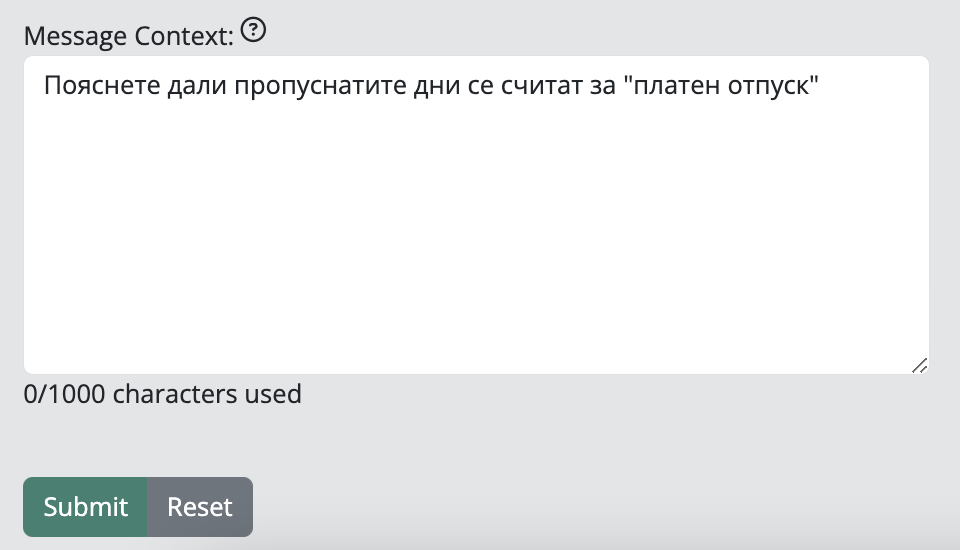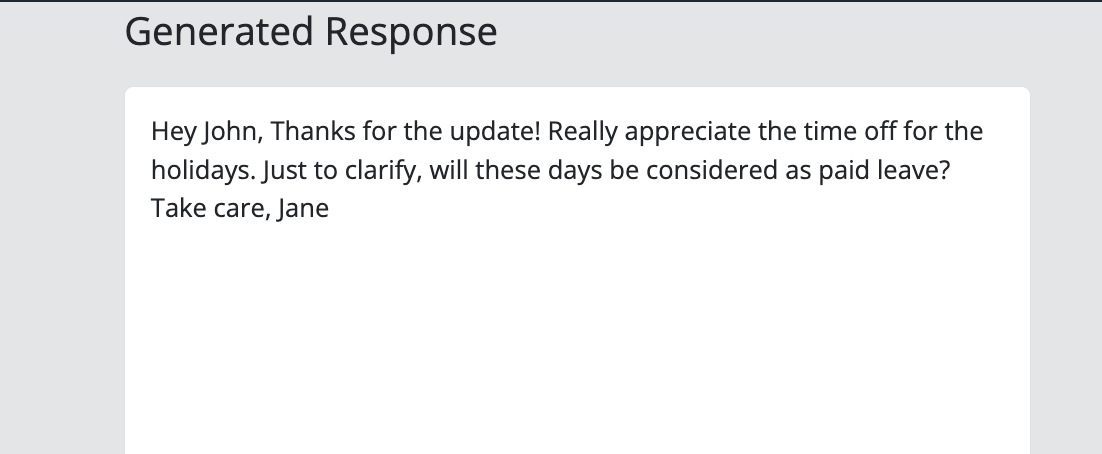MESSAGE PANDA

AI generated message replies
Easy to use | No sign up required | Always free
How to use Message Panda

Step 1
Specify if you are replying to someone. If you click yes, a new textbox will appear where you can paste the message you're replying to. For best practices, delete any identifiable information from the pasted message, such as phone numbers and addresses. The textbox has a limit of 1000 max characters.
Step 2
Tell ChatGPT if you would like your response to formatted as an email, text, or product review. Additionally, choose if you would like your message to sound more casual or professional. Specifying the tone and format will generate better results.


Step 3
In your preferred language, tell ChatGPT any details you want included in your message. The more information you add the better, but remember to exclude any identifiable details. Once again the character limit is 1000.
Step 4
ChatGPT will generate a message for you in English in your preferred format and tone!

About
About Message Panda
Message Panda was created by Viktoriya Petrova, and it aims to assist individuals with limited English proficiency in composing message replies more effectively. The platform, deployed on Google Cloud, utilizes a stack comprising of Python, Jinja2, JavaScript, Bootstrap, and the OpenAI API.
Copy Right Credit
All clip-art and logos were created with LogoMakr.
AI model used is ChatGPT3.5 courtesy of OpenAI.
Privacy Policy
Respecting your privacy is important to us. We do not store any information you provide on our servers, and we don't employ third-party cookies or trackers. The context you provide for your messages is solely used for the purpose of generating a response with OpenAI's ChatGPT3.5. Per OpenAI's privacy policy: OpenAI will not utilize data submitted by customers via their API to train or improve their models. Any data transmitted through the API is retained for a maximum of 30 days for the purposes of monitoring and preventing abuse and misuse. Subsequently, it will be delete d unless retention is required by law.